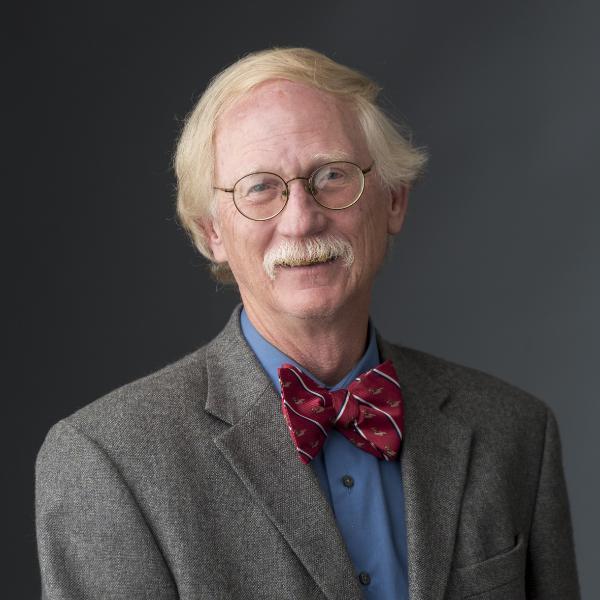
Master’s in Physiology
The M.S in Physiology program explores the structure and function of the cells and organ systems of the body and the ways these functions are regulated. Through individually planned programs of course work, tutorials, seminars and supervised research, you’ll gain sound training in general physiology. In the program, you have the option to choose either a literature review or research thesis as your main focus.
Graduates with a master’s degree in physiology can pursue careers in research or management in a variety of settings. Many students have used it as a path to enter other professional programs in the health sciences. You can apply your knowledge directly in the pharmaceutical and biotechnology industries, private research institutions, government science or regulatory agencies, or medicine and health care. You can also find a research or teaching role in academia.
Why is Physiology Important?
Physiology is a broad field that involves different scientific disciplines and includes many subspecialities like medical, animal and plant physiology. Physiology is a foundational discipline that forms the basis for understanding how the body functions. In the medical field, the study of physiology is important to understand normal and disease states in the human body. Clinical physiologists analyze organ systems, like the cardiac and respiratory system, to contribute to disease treatment and work to diagnose disease in a hospital setting. Physiologists also work with athletes, or other professionals with physically intensive jobs to help them adapt to novel challenges.
With an understanding of diseases on the cellular level, cell physiologists are instrumental in developing cures and treatments for many. Physiologists study everything from metabolic processes to blood flow regulation, which helps advance our understanding of diet, cardiac function, neurological changes and fitness. This expertise in disease and bodily processes from a cellular, molecular and whole-body perspective, makes physiologists invaluable for many areas in biomedical science and beyond.
Topics Explored in the Physiology Master’s Program
- Cellular neurophysiology
- Regulation of sleep and wakefulness
- Neural, endocrine and local control of homeostasis
- Cardiac dynamics
- Cardiac and cardiomyocyte electrophysiology
- Cardiac metabolism
- Cardiac hypertrophy and failure
- Function of the vascular and microvascular systems
- Endocrinology
- Neuroendocrinology
- Renal physiology
- Oxygen metabolism
- Physiology of biological membranes
What Can You Do with a Master’s in Physiology?
A master’s degree in physiology opens doors to a number of different science, health and medical disciplines. While those with an undergraduate degree only might start as a lab technician or research assistant, an advanced degree will allow you to qualify for management and supervisory roles. Physiology graduates often work for biotechnology or pharmaceutical companies, government agencies or research centers.
If you plan on continuing your education, your physiology background will be a useful asset in medical school, dental school, a physical therapy program or other health-related programs. With the knowledge gained in the M.S. program, you can also continue to a Ph.D. program in physiology or a related area and devote your career to research or teaching.
Program Curriculum
In the Physiology M.S. program, required courses include Mammalian Physiology I and II and Biochemistry. Early in the program, you will learn about each of the major organ systems and the basic concepts of cellular physiology. Coursework will explore the cardiovascular system where you will learn to analyze cardiac performance and the cellular and molecular bases of normal cardiac function and blood flow.
You will also explore cellular functions, such as the coordination of cellular metabolism and the structure-function relationship of specialized cells. Courses will cover physiological behavior in the reproductive system, the respiratory system and the physiology of exercise. Since physiology requires a strong understanding of other fields in medical science, you'll also take courses in areas like immunology or pharmacology.
For our M.S. programs, you'll have the option to choose an academic track tailored to your goals. Students enrolled in Track A are required to submit a literature review, while students in Track B are required to complete a research thesis describing their independent research. Required courses vary between each track. Visit the Physiology Curriculum page for detailed track information and course descriptions.
Admissions
We welcome applicants from different academic and professional backgrounds. To be considered for the M.S. program, prior coursework should show above-average academic achievement at the undergraduate level and in any previous work at the graduate level. Strong performance in math and science courses is important, but we do not require specific prerequisites to apply. Apply online after carefully reviewing our application requirements on the M.S. Admissions page.
Physiology Department Faculty
All faculty members in the Department of Physiology have a Ph.D. and/or M.D. degree and pursue advanced research in areas of physiology and biomedicine. Some of the fascinating research interests of our faculty include studying how neurons communicate, the relationship between mitochondrial DNA damage and diabetic cardiomyopathy, heart development, physiology of the diseased and aged heart, myocyte electrophysiology and the neurophysiology of the auditory system. Because physiology intersects with every other biomedical research discipline, our faculty experts have a wide breadth of scientific understanding and fully collaborate with other faculty in different departments. In our program, graduate faculty mentors provide guidance for studies, and our student-faculty ratio allows for plenty of individual attention. The faculty are responsible for the physiology curriculum in a number of programs outside of the GSBMS including the School of Medicine, Physical Therapy and Dental Medicine. Learn more about our knowledgeable and experienced faculty.
Contact

Carl I. Thompson, Ph.D.
- carl_thompson@nymc.edu
- (914) 594-4106

